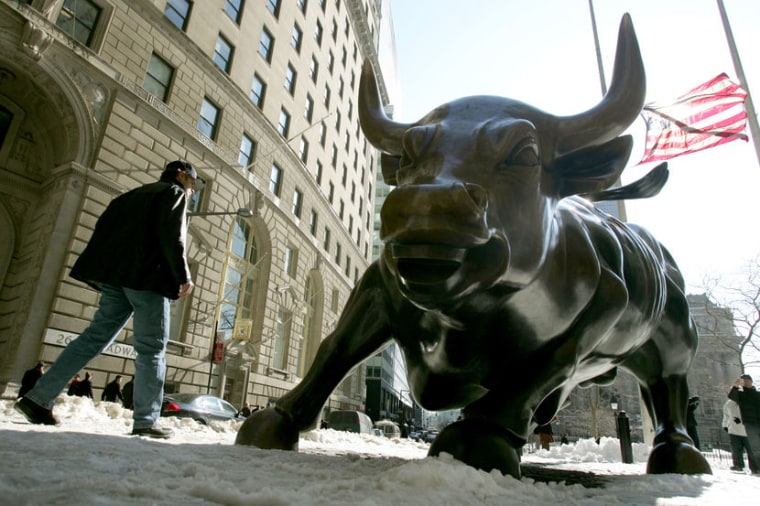In early November, Donald Trump published an exceedingly Trumpian tweet, declaring, "Stock Markets (all three) hit another ALL TIME & HISTORIC HIGH yesterday! You are sooo lucky to have me as your President (just kidding!)."
A month later, a reporter told Donald Trump that the Dow Jones Industrial Average was down more than 400 points for the day, and the losses were fueled in large part by his rhetoric about trade with China. "[I]f the stock market goes up or down -- I don't watch the stock market," he replied.
By any fair measure, it was one of his more laughable lies. In the weeks that followed, the president tweeted over and over again about the major indexes' closings, his intense interest in the stock market, and his insistence that he's "far outpacing" his presidential predecessors.
To be sure, investors have reason to be pleased with recent returns, but if Trump is eager to draw comparisons, he may not like where they lead. A CNBC report from last week noted, for example, "Trump's third year is above average, but not the best of any past president. In 2013, former President Barack Obama's stock market returned more than 32%, as the economy bounced back from the Great Recession."
A Washington Post analysis added:
While the stock market has performed well under Trump, it is not an unprecedented performance. Trump's stock market returns still lag behind Obama and Clinton at this point in their first terms.
The Dow Jones industrial average has gained about 45 percent since Trump was sworn in nearly three years ago. The Dow was up about 53 percent at this point in Obama's presidency and a whopping 57 percent in Clinton's early years in office.
Part of the problem with Trump's boasts is that he often sees the market as a real-time political barometer tied directly to developments in D.C. If the major indexes are on an upswing, the president sees it as proof of his genius. If they're declining, he insists his political opponents are to blame for the downturn.
The result is routine incoherence.
Just seven weeks ago, Trump argued that if he were impeached, "it would lead to the biggest FALL in Market History. It's called a Depression, not a Recession!" Soon after, he was impeached. Investors didn't much care.
This went on throughout the season. On Oct. 31, Trump wrote on Twitter, "The Impeachment Hoax is hurting our Stock Market." Almost exactly 24 hours later, he tweeted, "Stock Market up BIG! Record highs for S&P 500 and NASDAQ. Enjoy!"
Later that day, the president told reporters that the market was up that afternoon because "people finally got to see" the White House call summary of his July 25 conversation with the Ukrainian president. The document had already been available for five weeks.
It's tempting to think Trump would benefit from some kind of tutorial, with someone explaining to him what the stock markets are, but if recent history is any guide, he wouldn't listen anyway.
MORE: Today's Maddowblog

